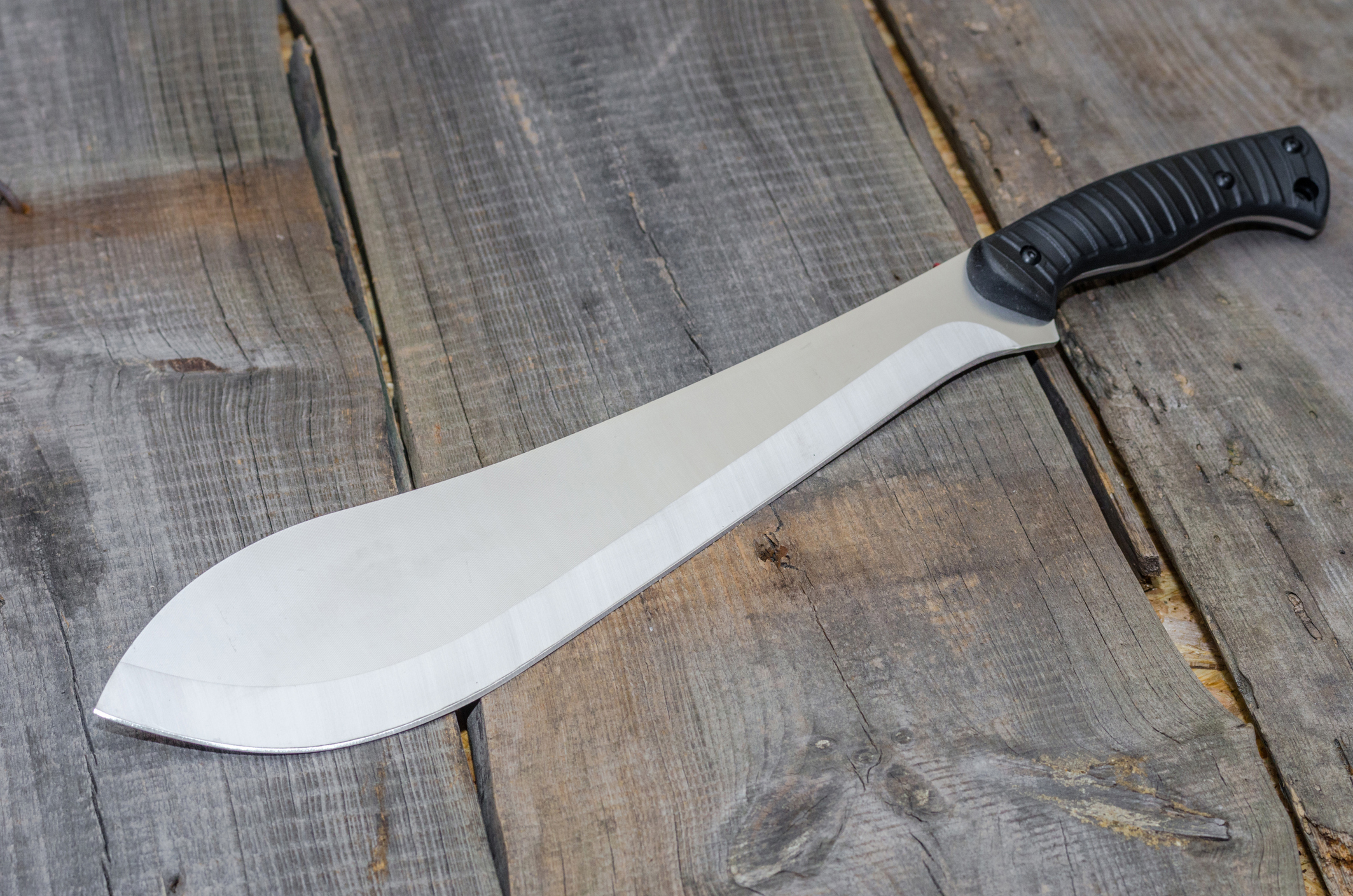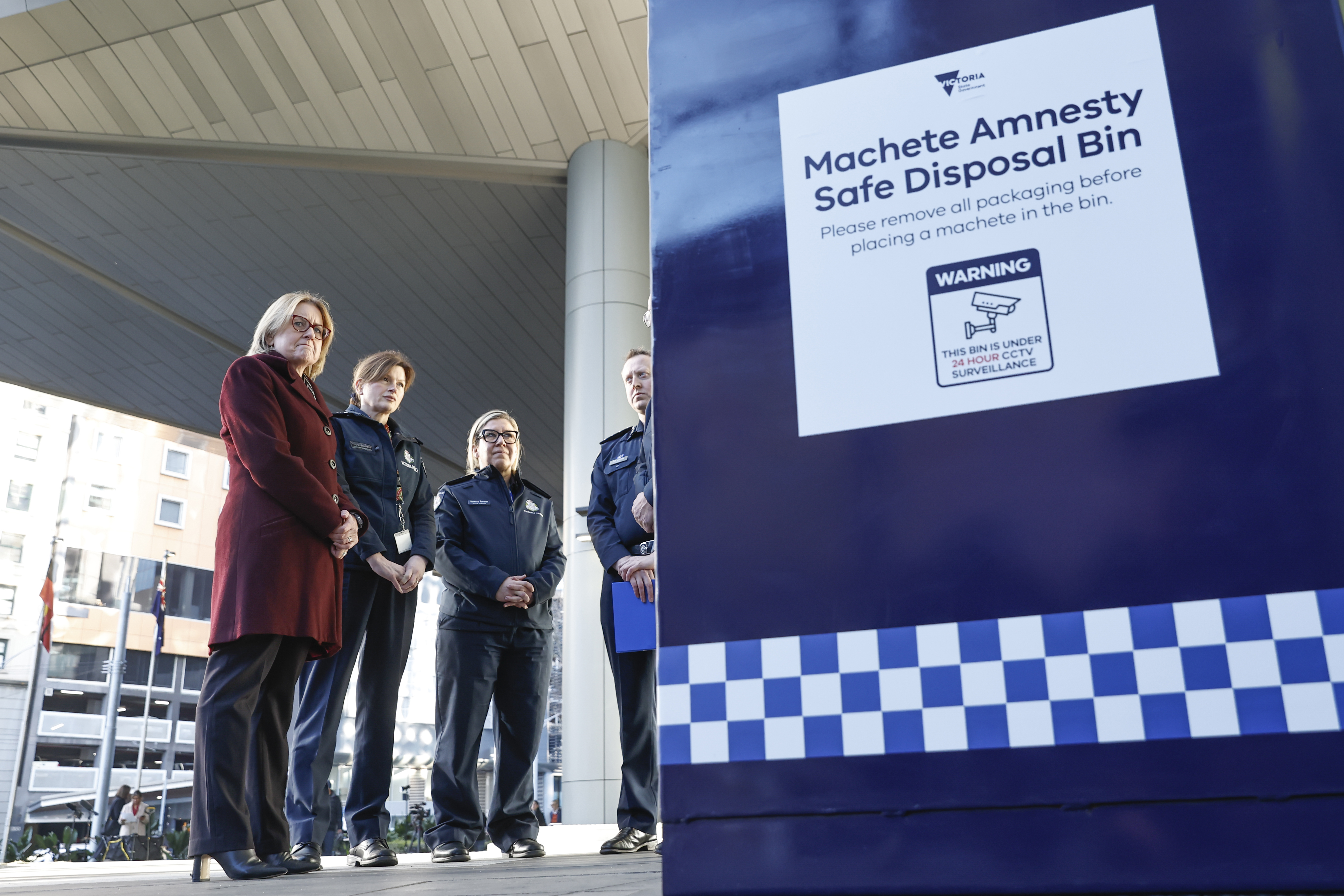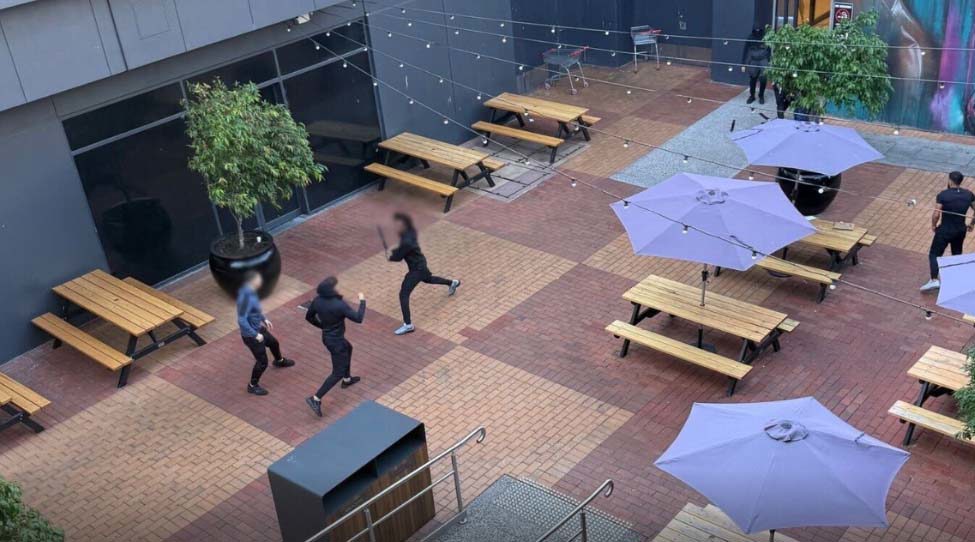A state-wide ban on machetes might slow down knife crime in Victoria – but the weapon type was never the issue, experts have warned.
Victoria's state government this week officially classified machetes as "prohibited" weapons under a newly-enshrined law, effectively making it illegal to own, carry, use, buy or sell a machete.
Swinburne criminologist Joel McGregor described the ban as a small "barrier" for criminals, but said there will still be plenty of ways machetes, or any weapon, will end up in the wrong hands.
READ MORE: Trump says he was unaware of theories that he was dead

"There's always an outcome of banning something, and there is likely to be a reduction [in machete crime]," he told 9news.com.au.
"But if people do want to get their hands on a machete, they will. And if they want to get their hands on another implement, they will.
"Unfortunately, that's the reality of the situation."
McGregor said the ban may result in a shift in public sentiment.
Victims of knife crime have called for similar bans in the past.
Machete crime spilled out into public arenas, including an incident at a Melbourne shopping centre which saw three charged after two groups of men armed with machetes left three people hospitalised.
"What we're doing here in some sense is making people feel more safe," McGregor said.

He likened the ban to a "Band-Aid" solution, similar to a ban on vapes or alcohol.
McGregor said the consequences of not addressing the root social causes will present an even worse problem.
He echoed decades of expert opinion on youth crime in Australia with a simple message: Go to the source.
"If we are looking at young people, which is my area, often young people don't understand the causes and consequences of their actions, because their brains are in a space where they're not fully developed," McGregor said.
"Although these issues have very real consequences for both young people and the community, we do need to think about what are the root causes here, about why they are committing these offences."
READ MORE: Military specialists join manhunt for Dezi Freeman

Chief executive of Victoria-based Jesuit Social Services Julie Edwards said fewer machetes on the streets can only be a positive thing.
She agreed with McGregor and said the next step is interrogating why young people pick up a weapon in the first place.
"By that stage they've got a weapon and they're up the pointy end of the system and we're very interested to do more earlier to prevent people really going down that path," Edwards said, "rather than waiting for harm to occur before we intervene."
"That behaviour itself is problematic and there are steps that lead up to that."
Edwards argued that a blend of early intervention, education, an investment in social services and restorative justice is the formula to slowly turning around Victoria's youth crime crisis.
Owning, carrying, using, buying or selling a machete without an exemption or approval could land you in prison for up to two years or a $47,000 fine.
Exemptions include people who have a genuine reason to use a machete for their job, including agricultural workers, or for machetes that have a genuine traditional, historical, or cultural significance.
Machetes are classified as controlled in most states and territories and are legal with a lawful purpose, however Victoria is the first state to officially ban them.
DOWNLOAD THE 9NEWS APP: Stay across all the latest in breaking news, sport, politics and the weather via our news app and get notifications sent straight to your smartphone. Available on the Apple App Store and Google Play.
from 9News https://ift.tt/59kLmJw
via IFTTT
Comments
Post a Comment